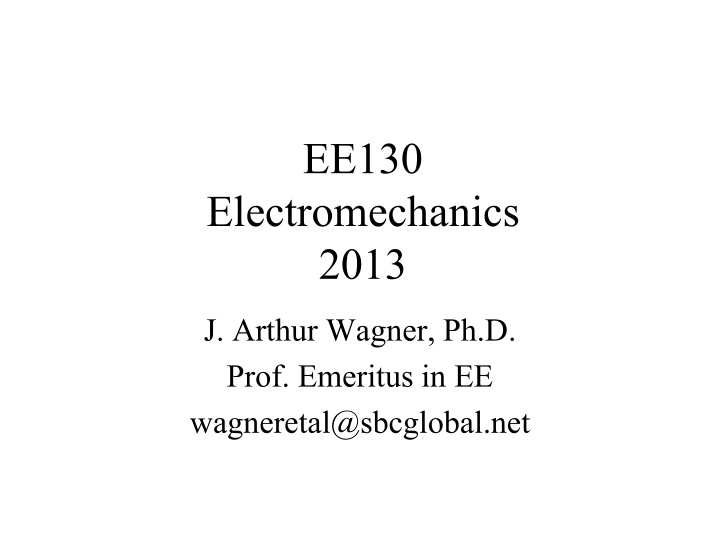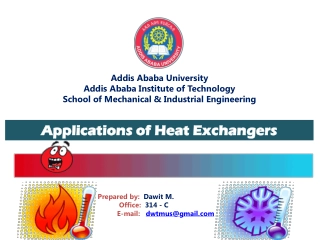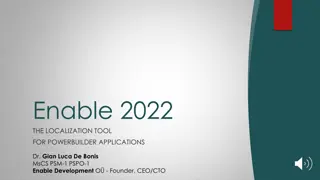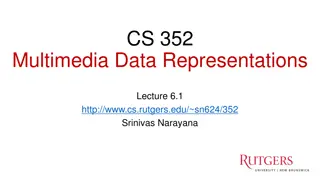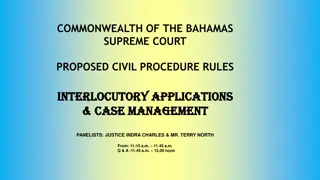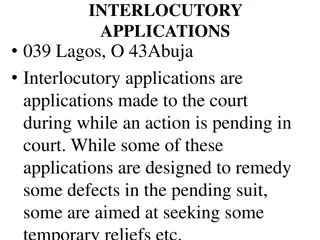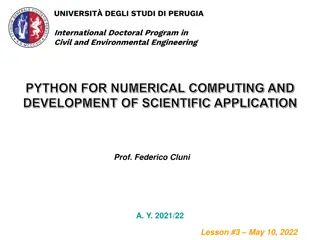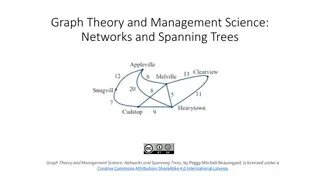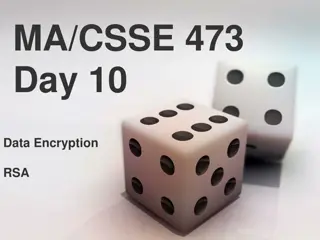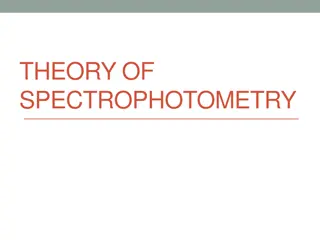Electromechanics: Key Concepts and Applications
Explore the intricacies of electromechanics through images and descriptions covering electric machines, motor construction, machine structures, and magnetic field production. Dive into homework assignments focusing on problems related to this field.
Uploaded on Sep 28, 2024 | 1 Views
Download Presentation

Please find below an Image/Link to download the presentation.
The content on the website is provided AS IS for your information and personal use only. It may not be sold, licensed, or shared on other websites without obtaining consent from the author.If you encounter any issues during the download, it is possible that the publisher has removed the file from their server.
You are allowed to download the files provided on this website for personal or commercial use, subject to the condition that they are used lawfully. All files are the property of their respective owners.
The content on the website is provided AS IS for your information and personal use only. It may not be sold, licensed, or shared on other websites without obtaining consent from the author.
E N D
Presentation Transcript
EE130 Electromechanics 2013 J. Arthur Wagner, Ph.D. Prof. Emeritus in EE wagneretal@sbcglobal.net
Fig. 6.1 Electric Machine Electrical System Mechanical System Electrical Machine Motoring mode elec P mech P Generating mode elec P mech P Examples to the right? Examples to the left? Examples both ways? Which way is the most common?
HEV PM motor cylindrical in shape shaft mounting holes cooling ports electrical terminal box
Fig. 6.2 Motor Construction Stator Air gap Rotor Shaft Cylindrical outside appearance Cross section Why do we need the air gap?
Fig. 6.3 Structure of Machines Think of 3-phase S N S N N S N S N S salient pole 2pole 4pole differently wound stator to create 4- poles induction motor rotor (could be the same as the 2-pole) salient ( sticking out ) poles plus windings on the salient pole rotor. 3-phase stator winding. the stator has a winding producing a rotating flux induction motor rotor
Homework Chapter 6: Due Tuesday, Sep. 24. No Classes next Tuesday and Thursday. These days will be made up TBD. Problems 6.1, 6.2, 6.3, 6.4, 6.5
Hk. 4-4 Note vo = 150 within v,control
Fig. 6.4 Production of Magnetic Field mmf = Ns is(t) set up by the stator -- right hand rule flux lines -- current causes magnetic intensity -- H = 0 in Fe -- two air gaps in one flux path -- We end up with H, F and B in the air gap. = ( ) si t magnetic axis r gl ( ) si t N s N i 2 N i s s = H s s 2 = = F H s s s g g = B H s o s
Questions Explain how the magnetic axis is defined. What are the three magnetic quantities in the air gap?
Fig. 6.4 cont Plot of air gap flux density ( ) B t s s s o N i 2l + stator surface g 2 s s o N i 2l rotor surface g 2 2 This is a developed form, that is unrolled, or spread out. The air gap is between the solid line and the dashed line.
Fig. 6.5 Electric Force (Lawrence Force) external field B B f f em f em em l i resultant subtract add = f B i el * i cross B right hand rule force on the conductor em Nm [ ] [ ] m A [ ] 2 [ / ] Wb m
Question What is the order of the cross product between current and flux density to determine force direction?
Fig. 6.7 Conductor Moving in a Magnetic Field + qf+ qf+ (into paper) B (into paper) B u u qf velocity cross flux density u cross B = e B l u [ ] V [ ][ / ] m m s 2 [ / ] Wb m
Fig. 6.8 Example 6.3 Determine the polarity of the induced emf. Top side or bottom side?
Fig. 6.9 Motoring Mode ri I o o 0 360 180 I re E m + re stator ri em T 0 axis E em T Electrical system 0 The stator sets up B. An external source sets up ir. Ignore resistance. Determine the polarity of the torque Tem as a function of delta. Determine the polarity of the bemf er as a function of delta.
Hk. 4-5 Vd = 150 Check the sum and the difference.
Hk 4-7
Tesla Connect or Connectors are always a headache. Why? Note cuts in surface of dc bus pins Battery, or dc bus pins equipment ground, sticks out the farthest sensor pins Latch
Tesla connector Shows spring- loaded door hinge and holding latch
